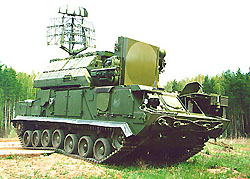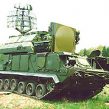
RUSSIA’S ARMS DEAL WITH IRAN: KREMLIN BELIEVES U.S. TOO WEAK FOR STRONG RESPONSE
Publication: Eurasia Daily Monitor Volume: 2 Issue: 229
By:

The Russian leadership appears to believe that the Iraq debacle marked the tuning point in the short-lived era of American global supremacy. The Iran arms deal suggests that the Kremlin will likely continue pursuing an assertive foreign policy in regions the U.S. deems vital for its national interests.
At the end of last week, Russian media reported that Moscow would supply 32 sophisticated Tor-M1 air defense missile systems to Tehran under a contract worth $1 billion. On December 3, a Russian Foreign Ministry spokesman told Itar-Tass that the Iran deal concerns “exclusively defensive weapons.” All the diplomatic explanations notwithstanding, the contract could not fail to raise eyebrows in Washington.
U.S. policymakers regard Iran as a state that has been supporting terrorist groups in the Middle East and sponsoring terrorism against the United States for the last 25 years. Undersecretary of State for Political Affairs Nicholas Burns who, quite ironically, happened to be in Moscow when the reports on the planned arms sale appeared in the press, made clear that he was very upset about the development. “We have a very poor relationship [with Iran],” said he in a December 2 interview with the Ekho Moskvy radio, adding that it is easy to “understand why we would not favor any country selling arms to a country like that.”
But Russian Defense Minister Sergei Ivanov shrugged off American objections to the deal, saying that it was fully compatible with international law. He argued that Russia had not violated any of its international obligations and noted that Iran currently is not subject to international sanctions. “This contract will be carried out in line with international law and Russia’s obligations,” Ivanov asserted. “We do not care whether others like it or not.”
Most Russian and international security experts agree that the Iran deal will negatively affect Russian-U.S. relations but doubt that Washington will go so far as to introduce sanctions against Moscow. Some analysts suggest that an excessively tough U.S. response is unlikely, since Washington is interested in Russia’s cooperation in a number of strategically important issues, including Iran’s nuclear ambitions. The Kremlin, too, appears unperturbed about possible U.S. retaliation. “The [arms] contract with Iran will hardly lead to a Russian-American scandal, although the U.S. is likely not very pleased about it,” a Putin administration official told the business daily Vedomosti.
Russia’s remarkable self-assuredness can be explained by the country’s robust economic performance and unprecedented oil revenues. But there appears to be another factor at play: the Kremlin likely perceives America as a weakened giant bogged down in the Iraq quagmire.
The Kremlin leadership sees the Bush administration’s ill-starred Middle East adventure as a kind of “moment of truth” in international affairs. This idea is clearly expressed in a lengthy paper written by Russian Foreign Minister Sergei Lavrov for Diplomaticheskii ezhegodnik-2005 and posted on the ministry’s official website.
First, it has been proved that America is not a hegemon in the unipolar world, Lavrov asserts. In reality, he notes, the world is multipolar one and “practically all nations, including the leading ones, proceed from this fact in their foreign policy.”
Second, the U.S. failure in Iraq appears to reveal the flawed nature of almost everything in American foreign policy that the Kremlin holds to be objectionable: unilateralism, boundless hubris, disregard for international organizations, reliance on raw force, bullying of opponents, and spreading of democracy through fomenting “color revolutions.” The course of events in Iraq has led to the destruction of “many myths,” Lavrov writes, and he suggests that the “post-Iraq period in global politics” will be more predictable.
In his essay, Russia’s top diplomat openly challenges U.S. policy toward Iran. There are already two large unresolved conflicts in the Middle East, Lavrov points out, adding that escalation and the possible destabilization of Iran as well as of Syria — another usual target of Washington’s sharp criticism — will only lead to the broadening of the “zone of instability.” Tehran should be “engaged,” not “isolated,” Lavrov contends. This policy recommendation runs contrary to the line that the United States suggests the international community should take vis-à-vis Iran. “Our view is that Iran needs, in essence, to be isolated,” Undersecretary Burns argued in his Moscow interview.
Emboldened by America’s perceived weakness and its newly forged strategic ties with the rising eastern giants China and India, the Kremlin feels comfortable enough to recognize that its own — and presumably its powerful allies’ — vision of the new world order differs markedly from that of the United States. Russia’s optimism appears to rest on the leadership’s sense that the country is an ascendant power. As Lavrov’s essay asserts, “We are on the side of history.”
(Vedomosti, AP, December 7; Mid.ru, December 5; Ekho Moskvy, December 2)




